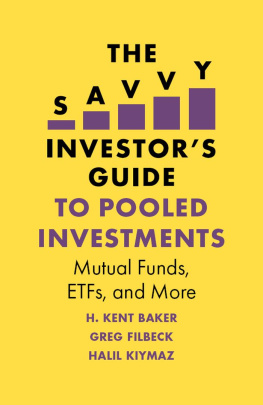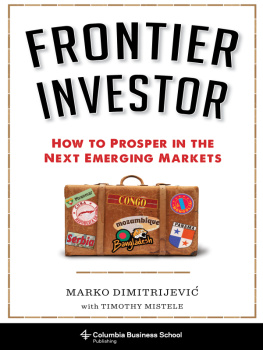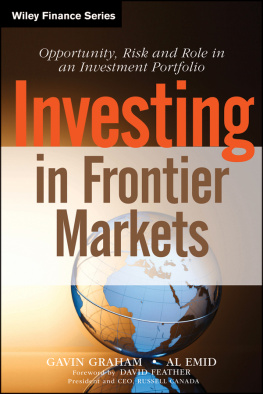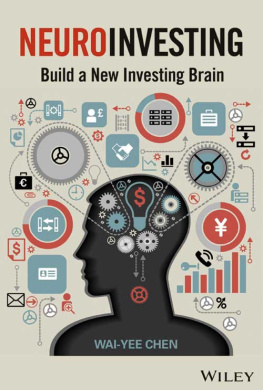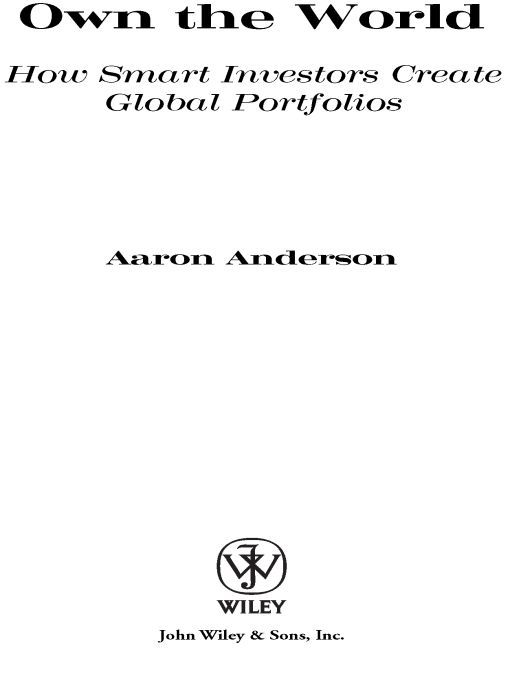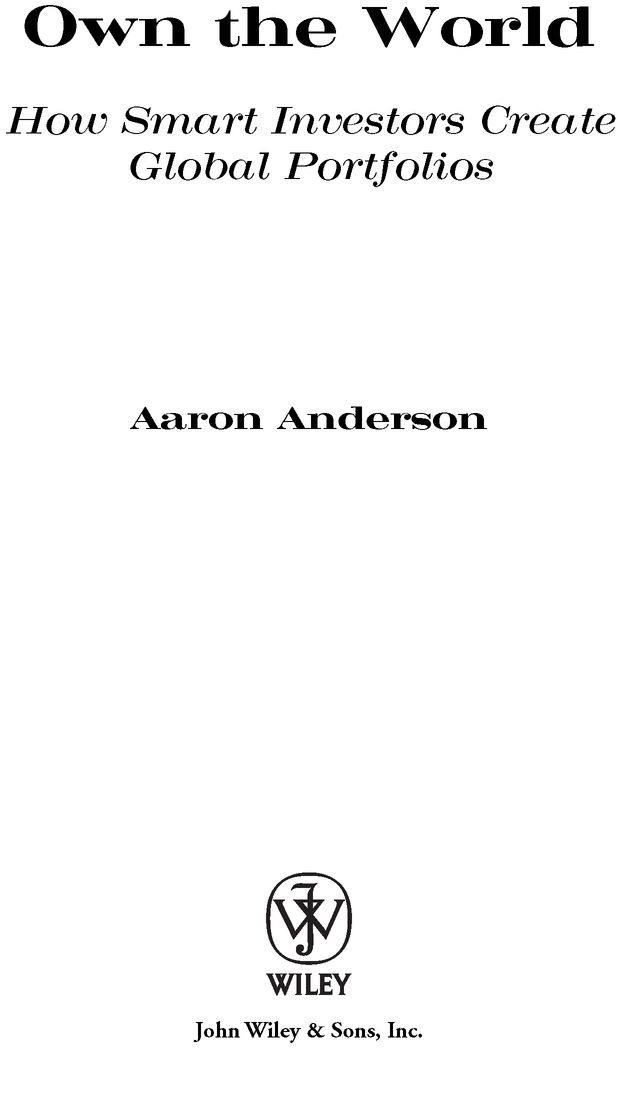Table of Contents
FISHER INVESTMENTS PRESS
Fisher Investments Press brings the research, analysis, and market intelligence of Fisher Investments research team, headed by CEO and New York Times best-selling author Ken Fisher, to all investors. The Press will cover a range of investing and market-related topics for a wide audiencefrom novices to enthusiasts to professionals.
Books by Ken Fisher
The Ten Roads to Riches
The Only Three Questions That Count
100 Minds That Made the Market
The Wall Street Waltz
Super Stocks
Fisher Investments Series
Own the World
Aaron Anderson
Fisher Investments On Series
Fisher Investments on Energy
Fisher Investments on Materials
FISHER
INVESTMENTS
PRESS
Preface
America is an island. Ok, its not an island in the traditional sense. Were not surrounded by water. Inhabitants here dont live on a diet of coconuts and... well... coconuts. And its rare to find folks in grass skirts dancing to ukulele tunes. But if you looked closely at many US investors portfolios, youd think were almost completely isolated from other countries. Own the World is out to change all that.
We at Fisher Investments manage billions of dollars in global equities for about 25,000 clients. We believe wholeheartedly down to the marrow of our bones global is the best way to invest. Thats not because foreign stocks make better investments than US stocks. Sometimes foreign stocks beat US stocks, and sometimes US stocks win. But the many benefits of global investing persist no matter which markets happen to be performing best at any given time.
Collectively, US investors own far fewer foreign stocks than they often should. This is despite the fact global investing has increased dramatically in recent years. Its estimated today about 60 percent of US equity investors have some exposure to foreign stocks. Thats a big increase from a few years ago, when only about 30 percent invested overseas. So its clear US investors are catching on to the fact global investing is both possible and beneficial, yet most are simply dipping their toes in the ocean when they should be going for a swim.
While its true there are quite a few great investment opportunities here in America, there are also tremendous opportunities abroad. Many of the worlds biggest and fastest growing companies are located outside the US, so global investing opens a world of opportunity (pun intended).
The potential for boosting performance is one important reason to warm to foreign stocks, but the possibility of better returns isnt the only reason. As youll read, seeking to lower risk through diversification is another important attribute of a global investment portfolio. Non-US stocks dont move in lockstep with US stocks, but their aggregate long-term returns are about the same. So including foreign stocks in your portfolio can reduce volatility (or risk in investing parlance) without sacrificing long-term performance. Thats not to say there arent periods when US and foreign stocks move together. In many ways, a stock is still a stock, no matter where it comes from. When investors dont want to own stocks, they often dont want to own stocks from any country. As I write this in 2008, both US and foreign stocks are slogging through a global morass affecting stocks in just about every country on the planet. At times like this, when foreign stocks are suffering right alongside their US counterparts, the benefits of global investing can be difficult to see. But theyre there. The same holds true when investors are clamoring to get their hands on as many shares as possible causing stock everywhere to skyrocket together.
So if stocks have a place in your portfolio (and they probably do), investing globally adds a multitude of benefits. But if stocks dont makes sense for you given your investment objectives, that prescription applies to global stock as well as domestic. Whatever asset allocation you settle on, a good long-term investing plan should take into account both good times and bad.
It would be a mistake to call Own the World a global investing guide. Guides typically tell you where to go. Travel guides list the best hotels, museums, and cafes in cities all over the planet. But they dont necessarily tell you why you should go there. As youll read, the composition of the worlds stock markets provides the best guide for investors. Own the World is more of a treatise explaining why you should invest globally, the tools available to global investors, and many of the things to watch out for.
Books touting specific markets to invest in are often a waste of money. Theyre usually written about stocks in countries that have done well in the past because many investors are interested in learning about the next hot market. But markets are dynamic, and todays hot market might be tomorrows dud. Dozens of books were written about investing in China after Chinese stocks boomed in 2007. But already in 2008, many Chinese shares have given back most if not all of their 2007 gains. Chasing hot markets is like chasing your tail. Quite often, you end up biting yourself in the rear.
More often than not, we find clients have scant experience investing in foreign stocks prior to working with us. Many are initially apprehensive about expanding portfolios overseas, so were continually educating clients on the many benefits a global portfolio offers. Hopefully, this book will impart some of the knowledge weve attained about global investing and the rewards and challenges that go along with it.
Acknowledgments
I cant type. Honestly. In an ill-fated decision during my high school years, I never enrolled in typing class, forever handicapping my ability to produce anything literary. Being that my shortcomings as an author begin at the most fundamental level and certainly dont end there, you can imagine how many people I leaned on heavily to write this book.
To begin, Id like to thank Ken Fisher, Andrew Teufel, and Jeff Silkthe members of Fisher Investments Investment Policy Committee. Their years of dedication making Fisher Investments the firm it is today provided me this opportunity. Theyve also kept me employed, for which Im particularly grateful. I owe an additional debt of gratitude to Andrew for his guidance with every aspect of this book.
If anyone deserves credit for preventing this book from degrading into a meaningless heap of gobbledygook, its Lara Hoffmans. A simple acknowledgment here isnt ample thanks for the years the stresses Ive caused have undoubtedly taken off her life. Dina Ezzat and Evelyn Chea were also instrumental in making sure my is were dotted and my ts crossed, an especially daunting task given my lack of typing skill.
Marc Haberman, Molly Lienesch, and Fabrizio Ornani deserve enormous credit, not only for their assistance with this book but for making Fisher Investments Press a reality.
The help I received from the Fisher Investments Research Team was invaluable. Particular thanks to Jennifer Chou for her research support and William Glaser for helping procure the resources needed to make this book possible. And its quite likely Id have gone mad if it wasnt for the encouragement I received from Michael Hanson.



